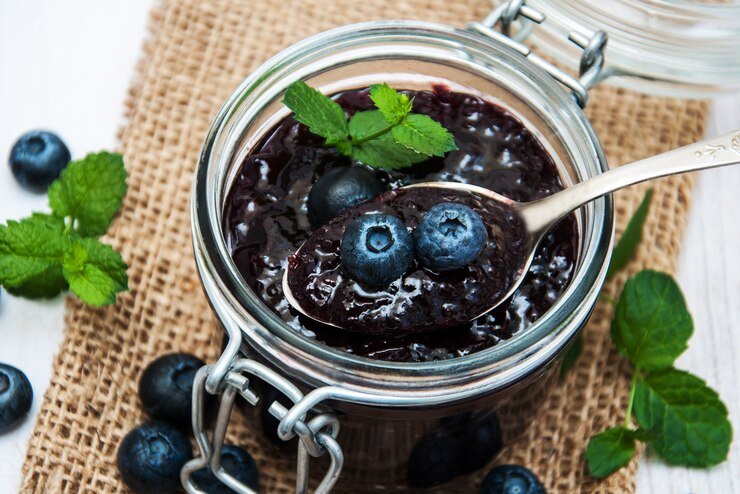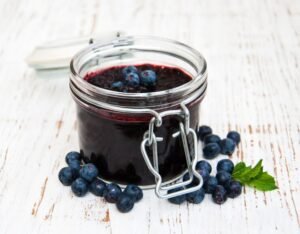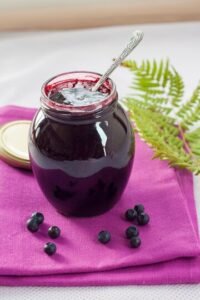Making Blueberry Syrup
Heading: Crafting the Perfect Blueberry Syrup
Creating homemade blueberry syrup is a satisfying project that yields a delicious result. Whether using fresh or frozen blueberries, the process is straightforward but can be adjusted to suit personal taste preferences in sweetness and consistency.
Subheading: Using Fresh Blueberries
Ingredients and Step-by-Step Instructions
Ingredients:
- 2 cups fresh blueberries
- 3/4 cup granulated sugar
- 1 cup water
- 1 tablespoon lemon juice (optional, for added brightness)
Instructions:
- Prepare the Berries: Rinse the fresh blueberries under cold water, picking out any stems or overly ripe berries.
- Combine Ingredients: In a medium saucepan, combine the blueberries, sugar, and water. If desired, add lemon juice to enhance the syrup’s flavor.
- Cook the Mixture: Place the saucepan over medium-high heat. Stir continuously until the sugar dissolves and the mixture comes to a boil.
- Simmer: Reduce the heat to low and let the mixture simmer for about 10-15 minutes, or until the blueberries have broken down and the liquid has thickened slightly.
- Strain: Use a fine mesh strainer to strain the mixture into a bowl, pressing on the berries to extract as much liquid as possible.
- Cool and Store: Allow the syrup to cool to room temperature. Transfer it to a clean jar or bottle and refrigerate. Use within two weeks.
Subheading: Using Frozen Blueberries
Ingredients and Adaptation of the Recipe for Frozen Berries
Ingredients:
- 2 cups frozen blueberries (no need to thaw)
- 3/4 cup granulated sugar
- 1 cup water
- 1 tablespoon lemon juice (optional)
Instructions:
- Combine Ingredients: In a saucepan, mix the frozen blueberries, sugar, and water. Add lemon juice if using.
- Heat the Mixture: Cook over medium-high heat, stirring until the sugar is fully dissolved and the mixture starts to boil.
- Simmer: Lower the heat and let it simmer for about 15-20 minutes. Frozen berries may take slightly longer to break down and thicken.
- Strain and Press: Strain the cooked berries through a mesh strainer, pressing to extract as much syrup as possible.
- Cool and Bottle: Allow the syrup to cool completely. Then, pour it into a clean, airtight container and store in the refrigerator.
Using frozen berries is a convenient option that can yield a slightly more intense flavor due to the berries being picked and frozen at peak ripeness.



